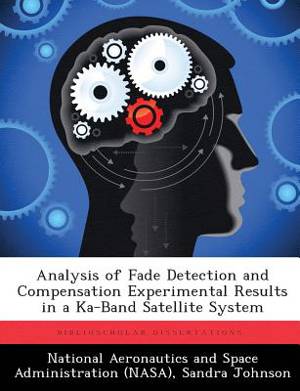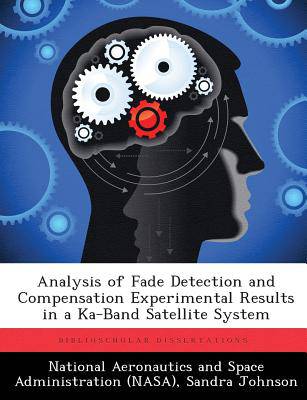
- Afhalen na 1 uur in een winkel met voorraad
- Gratis thuislevering in België vanaf € 30
- Ruim aanbod met 7 miljoen producten
- Afhalen na 1 uur in een winkel met voorraad
- Gratis thuislevering in België vanaf € 30
- Ruim aanbod met 7 miljoen producten
Zoeken
Analysis of Fade Detection and Compensation Experimental Results in a Ka-Band Satellite System
Sandra Johnson
Paperback | Engels
€ 54,45
+ 108 punten
Omschrijving
The frequency bands being used for new satellite communication systems are constantly increasing to accommodate the requirements for additional capacity. At these higher frequencies, propagation impairments that did not significantly affect the signal at lower frequencies begin to have considerable impact. In Ka-band, the next logical commercial frequency band to be used for satellite communication, attenuation of the signal due to rain is a primary concern. An experimental satellite built by NASA, the Advanced Communication Technology Satellite (ACTS), launched in September 1993, is the first US communication satellite operating in the Ka-band. In addition to higher carrier frequencies, a number of other new technologies, including onboard baseband processing, multiple beam antennas, and rain fade detection and compensation techniques, were designed into the ACTS. Verification experiments have been conducted since the launch to characterize the new technologies. The focus of this thesis is to describe and validate the method used by the ACTS Very Small Aperture Terminal (VSAT) ground stations in detecting the presence of fade in the communication signal and to adaptively compensate for it by the addition of burst rate reduction and forward error correction. Measured data obtained from the ACTS program is used to validate the compensation technique. In this thesis, models in MATLAB are developed to statistically characterize the increased availability achieved by the compensation techniques in terms of the bit error rate time enhancement factor. Several improvements to the ACTS technique are discussed and possible implementations for future Ka-band systems are also presented.
Specificaties
Betrokkenen
- Auteur(s):
- Uitgeverij:
Inhoud
- Aantal bladzijden:
- 98
- Taal:
- Engels
Eigenschappen
- Productcode (EAN):
- 9781288910472
- Verschijningsdatum:
- 12/03/2013
- Uitvoering:
- Paperback
- Formaat:
- Trade paperback (VS)
- Afmetingen:
- 189 mm x 246 mm
- Gewicht:
- 190 g

Alleen bij Standaard Boekhandel
+ 108 punten op je klantenkaart van Standaard Boekhandel
Beoordelingen
We publiceren alleen reviews die voldoen aan de voorwaarden voor reviews. Bekijk onze voorwaarden voor reviews.











